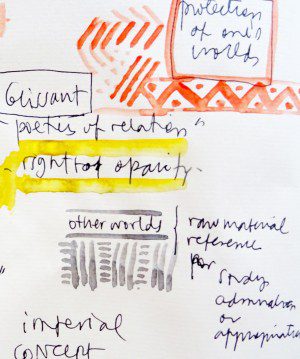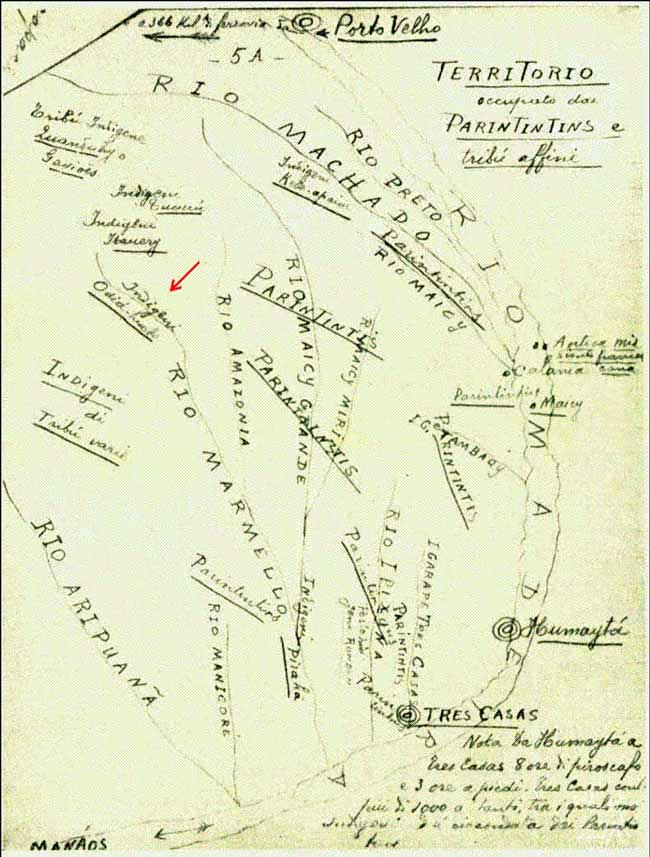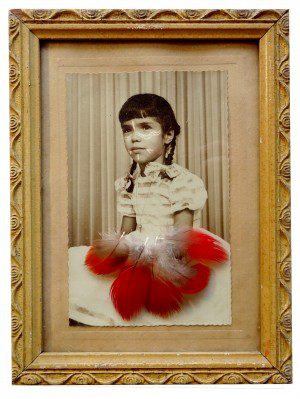i am river, i am land. now i know
~
RECONSTRUCTING THE FAMILY ARCHIVE
autobiographical research since 1999, ongoing
presentation of field notes, archival material and related objects and literature in the Afro-Asian Institute Graz, spring 2019
there is no common narrative. I have an (un)ability to speak. it is impossible to remember. nothing is exactly. but i dream in a language once i knew. it was one of the thousand languages of the rainforest, the languages of the beings of the day and the beings of the night. the languages that flow in its waters. the languages that resist and the ones which were killed. we should have heard them in time. it is time. time returns. are we learning to hear?


My grandmother, born in Lisbon was named América. Due to my grandfather’s political support to Humberto Delgado in the portuguese presidential elections of 1958, they were forced to flee over the Atlantic to the marvelous city. América do Carmo became the América living in América. They had to learn the portuguese language of the other side of the ocean, full of mixtures and rhythms of Tupis and Yorubás. My father did learn it somehow, but América never lost her accent and the memories of the olive and fig trees of the gardens of her childhood.
My grandfather, born in a stilt house along the Madeira River, ate fish, monkeys and parrots until he reached the age of seven. When his mother moved to Manaus in 1924, with her six daughters and one son, none of them had surnames. Pinheiro de Souza was given to them by the catholic church.
Couldn’t the priest pick an amazonian tree instead? Why a pine tree (pinheiro)? Why not Jambu or Ucuúba, Maçaranduba or Urucum? Tucumã, Jutaí, Copaíba, or Jacareúba, Jatuaúba,or Uxi? The cultural and geographical origins of the family were somehow erased. Not only by the portuguese naming and catholic education, but they were literally forced to silence, to hide their indigenous past – in order to survive especially when they migrated to Rio, in 1938. I was born a few decades later in this melting pot named Rio – the River of January, that January of 1502 when Amerigo Vespucci arrived with his crew to settle the city and start the genocide of the indigenous populations living there – the Tupinambás, a genocide followed by many others…
Following these conjunctions of rivers and oceans, I was given 4 last names. Among these, I chose the one from my mother’s mother: Brasil. Her exactly story I don’t know, she died before I could ask. But at least Brasil is a portuguese name of a tropical tree. Its Tupi name was Ibirapitanga. Maybe I should rename myself so, Daniela Ibirapitanga. In any case Brasil has passed through female lineage for four generations by now. Born in Graz, my children (whose father has origins in Saxony and Silesia) became König Brasil…. I wonder which postcolonial, postnation-state kind of mestiçagem will emerge from this.
Perhaps a kingdom of forests?
I hope so.

“UPDATED #2” >> portrait of my mom. 1st communion – in the catholic church, 1956. 2nd communion – with indigenous ancestors, 2019.
~